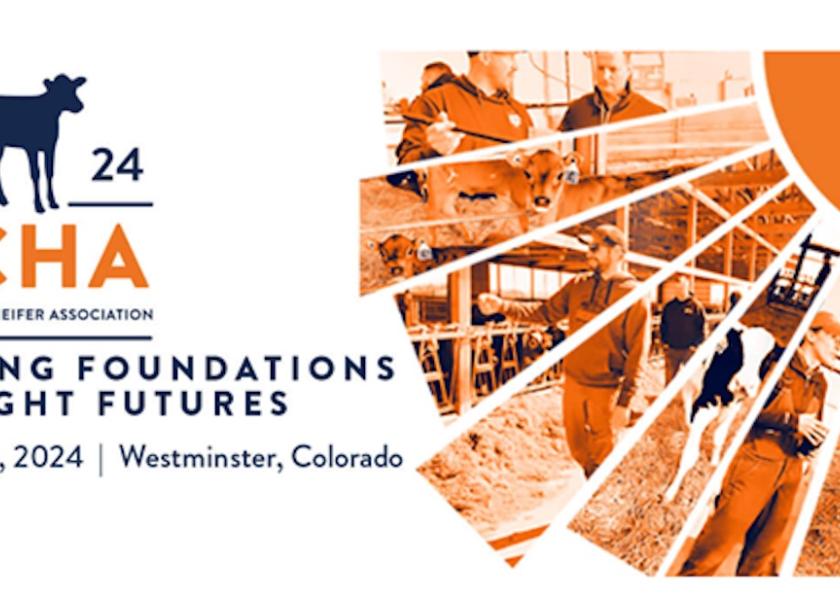DCHA Heads West for 2024 Conference

Go west, calf and heifer raisers, to the 2024 Dairy Calf and Heifer Association Annual Conference and Trade Show, slated for April 9-11 in Westminster, Colo.
Along with a change of scenery, this year’s conference and trade show promises “Strong Foundations for Bright Futures” via a wide range of educational and networking opportunities.
Conference sessions will be structured by interest tracks, including wet calf/weaning; post-weaned/reproduction; and beef cross. Featured presentations include:
- Transition milk: What is it and should all calves be fed some form of “transition” milk? – Michael Ballou, Texas Tech University
- She’s weaned. Now what do we do? – Tom Tiyutki, Ag Modeling and Training Systems
- Building your mental health toolbox – Ashley Machodo, M Well Consulting
- Calf vet perspective on liver abscesses – Taylor Engle, 4 Star Veterinary Service , LLC
- Best practices for disease prevention – Geoff Smith, Zoetis
- The use of essential oils and oligosaccharides in neonatal calves – David Casper, Ralco, Inc.
Several producer panels will also be featured, bringing first-person testimony to the major issues, challenges, and opportunities for today’s calf and heifer-rearing operations.
All sessions will include live Spanish translation. A virtual option will be offered for those who cannot attend in person. Single-day registration is also available.
And, as always, the conference trade show brings together calf and heifer service industries and suppliers to answer questions and offer solutions all in attendance.
Registration and hotel information can be found on the DCHA website. For best rates, register by April 5.
For more on calf health, read:
- Can We Improve Colostrum Through Dam Nutrition?
- Waste Milk: Freebie or Foible?
- Try to Keep Dry to Prevent Crypto
- Well-Grown Heifers Bring More Value
- New Genetic Defect Discovered in Holsteins
- 7 Tips for More Effective Vaccination Programs in Calves







